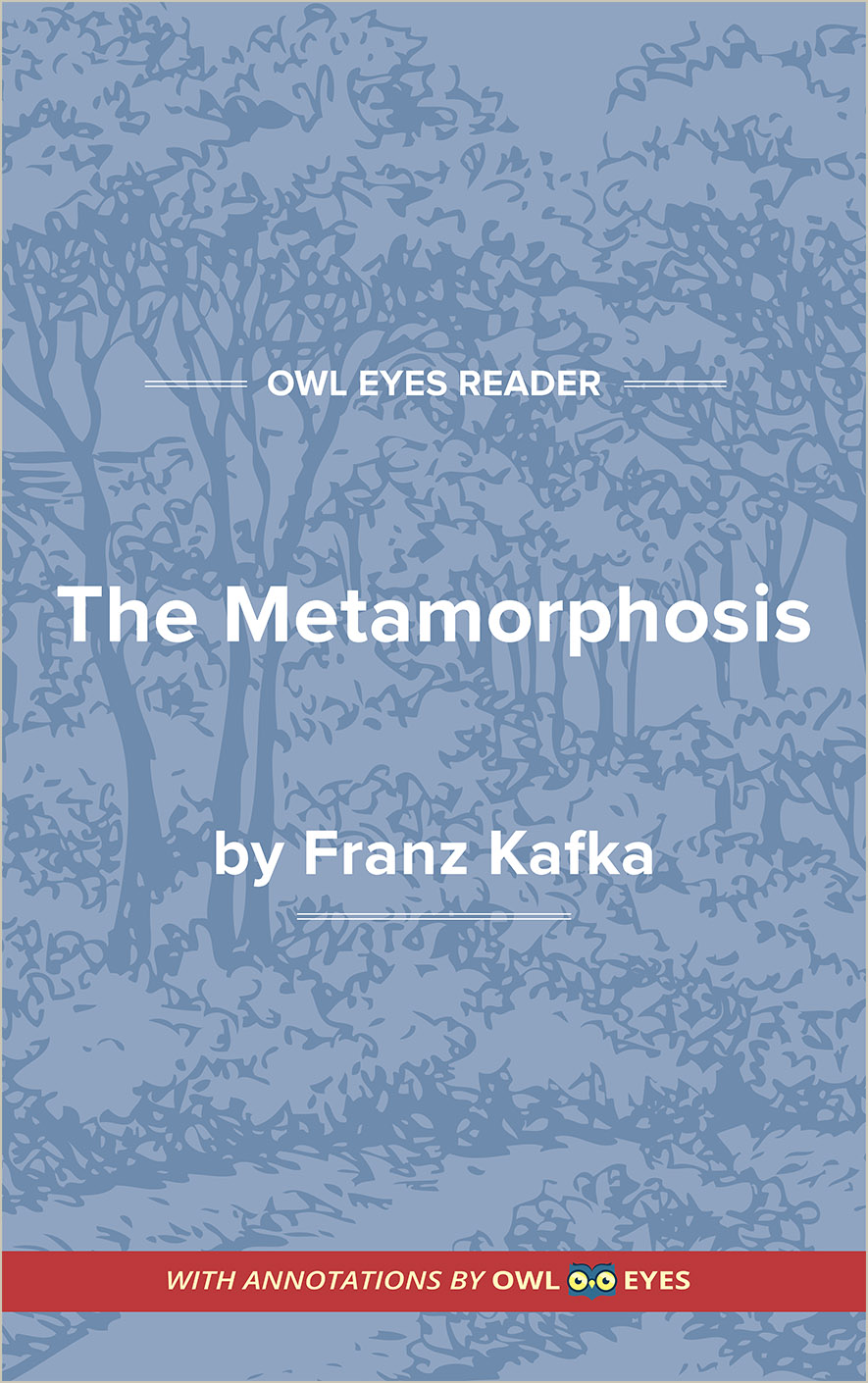Analysis Pages
Themes in The Metamorphosis
Alienation as a Consequence of Difference: Because of his commitment to his work, Gregor is alienated not just from romantic relationships but also from his family. He is the only one who works; thus, he does not share in the same experiences that they do, such as at mealtimes. A more obvious example of this theme is suggested at the family’s disgust in Gregor’s transformation. It’s clear that Grete and Gregor’s mother, at least, see him as their relative for the majority of the story, but his appearance necessitates his being hidden.
Familial Sacrifice vs. Finite Sympathy: At the beginning of the story, Gregor is the sole breadwinner of the family, having sacrificed happiness and relationships for his family’s comfort. Gregor’s transformation can be read as Gregor’s unconscious rebellion against his family’s having taken advantage of his work ethic for so long—now, they must sacrifice for him rather than the other way around. However, the family’s dedication to Gregor only extends so far; Grete is the only one who shows kindness to transformed Gregor, but even she reaches the limits of empathy.
Life’s Absurdity Is Inescapable: Throughout the story, there is no talk of anyone’s—Gregor or his family—trying to find some way to turn Gregor back into a human being. The family’s reactions range from repulsion to tolerance, but there’s no impetus to figure out what caused Gregor’s transformation or find a method of reversing it. Instead, they simply adapt, with varying degrees of success, to the impossible. The characters do not acknowledge the inherent absurdity of a man’s waking up to discover he’s an insect; his transformation is regarded as the result of chance more than anything else. Because of this lack of explanation and exploration into Gregor’s condition, Kafka suggests that absurd events in life are unavoidable and must be dealt with rather than overcome or reversed.
Themes Examples in The Metamorphosis:
Chapter I
🔒"hissing like a wild savage..." See in text (Chapter I)
"The attorney fled momentarily from his mind..." See in text (Chapter I)
"They were communicating through Gregor's room..." See in text (Chapter I)
"at the very least, one had to concede the possibility of such a thing..." See in text (Chapter I)
"the only one condemned..." See in text (Chapter I)
"without being able to make the decision to get out of bed..." See in text (Chapter I)
"into which her entire forearm had disappeared..." See in text (Chapter I)
"a proper room for a human being..." See in text (Chapter I)
Chapter II
🔒"uniting wholly with him—Gregor's sight then failed him..." See in text (Chapter II)
"And so he fled to the door of his room and pushed on it..." See in text (Chapter II)
"shutting the door closed with her foot..." See in text (Chapter II)
"it felt good against his hot underbelly..." See in text (Chapter II)
"He would rather jump in Grete's face..." See in text (Chapter II)
"and, apparently, she led the mother by the hand..." See in text (Chapter II)
"door..." See in text (Chapter II)
"and for this reason the sister had certainly prepared it..." See in text (Chapter II)
Chapter III
🔒"the daughter rose up first and stretched her young body..." See in text (Chapter III)
"the clock tower struck the third hour of the morning..." See in text (Chapter III)
"fell from her lap and sent out a sonorous tone..." See in text (Chapter III)
"Was he an animal, that music would so move him..." See in text (Chapter III)

